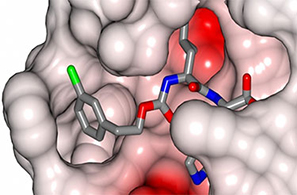New $3.7 million NIH grant supports collaborative research against MERS coronavirus
Friday, June 8, 2018
MANHATTAN — A relatively new virus has commanded the attention of a team of multi-institutional researchers and prompted a $3.7 million five-year research project.
Kansas State University's Kyeong-Ok "KC" Chang, a virologist at the College of Veterinary Medicine, is collaborating with multiple scientists from various disciplines on Middle East Respiratory Syndrome coronavirus, which is known as MERS-CoV.
"Since the unexpected emergence of Middle East Respiratory Syndrome coronavirus in 2013, the ongoing outbreaks of MERS in the Middle East and the potential for global transmission of MERS have underscored the urgent need for effective preventive and therapeutic measures against this highly virulent coronavirus," Chang said.
Chang is collaborating with Yunjeong Kim, a virologist from Kansas State University; William C. Groutas, a medicinal chemist at Wichita State University; Stanley Perlman, a virologist at the University of Iowa; and Scott Lovell, a structural biologist at the University of Kansas.
Their grant, "Small Molecule Protease Inhibitors Against Middle East Respiratory Syndrome Coronavirus," is funded by the National Institutes of Health's National Institute of Allergy and Infectious Diseases.
Coronaviruses are part of a group of RNA viruses that look like a corona or halo when viewed under the electron microscope. Directly acting inhibitors such as polymerase inhibitors and protease inhibitors have been successfully developed and available to the public against viral infections like the human immunodeficiency virus and hepatitis C virus. However, no specific antiviral is yet available for MERS-CoV.
Kim, Chang and Groutas have been working on protease inhibitors for a fatal feline coronavirus infection, called feline infectious peritonitis, or FIP, and have recently shown the efficacy of their inhibitor in the treatment of this infection in feline patients. This shows the potential of their approach to the development of an antiviral drug for coronavirus infection.
"MERS-CoV has two viral proteases that are essential for viral replication, making them attractive therapeutic targets," Chang said. "We are working on the development of protease inhibitors against one of MERS-CoV proteases by optimizing current effective compounds toward preclinical drug candidates. This campaign will have a significant impact on MERS-CoV research and public health."

